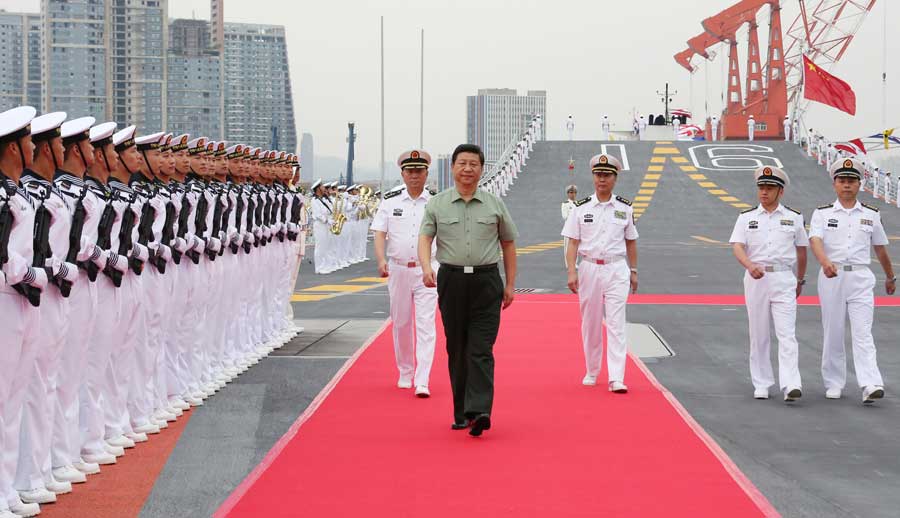Profile: Xi Jinping and his era

 |
Xi Jinping reviews an honor guard on the aircraft carrier, the Liaoning, in Northeast China's Liaoning province, Aug 28, 2013. [Photo/Xinhua] |
Top commander reshaping the military
As chairman of the Central Military Commission (CMC), Xi is tasked with ensuring the world's largest military take a "crucial leap" in the new era from being simply large to being strong.
To achieve this, the commander-in-chief of an armed force of two million servicemen and women has outlined a two-step approach.
"We will make it our mission to see that by 2035, the modernization of our national defense and our forces is basically complete; and that by the mid-21st century our people' s armed forces have been fully transformed into world-class forces," Xi said in the report to the 19th CPC National Congress.
Neither of these two goals is easy, and Xi has turned to reviving the army's revolutionary spirit of wartime to seek momentum.
At Xi's behest, a conference on the army's political work convened in 2014 in Gutian Township, Fujian Province, the very place where Mao Zedong presided over the gathering in 1929 which established the principle of the Party's absolute leadership of the army.
One of Mao's most famous dictums back then was that "political power comes from the barrel of a gun." In the new era, the army faces much different tasks and missions: from safeguarding the territorial sovereignty of a vast land, sea and airspace, to facilitating national unification; from protecting China's ever-increasing overseas interests, to counter-terrorism and disaster relief.
But for Xi, the top priority remains the same as it was eight decades ago -- putting the entire military under unified and absolute command, and ensuring that the armed forces follow the orders of the Party.
In the new Gutian conference, Xi reaffirmed the People's Liberation Army (PLA)' s fine traditions and principles of political loyalty and leadership by the Party. He also indicated some outstanding problems which had to be resolved "right away," or the PLA risked degradation and deviation.
Since the 18th CPC National Congress, more than 100 PLA officers at or above the corps-level, including two former CMC vice chairmen, have been investigated and punished. The number is even greater than that of army generals who died in the battlefield during revolutionary times.



















